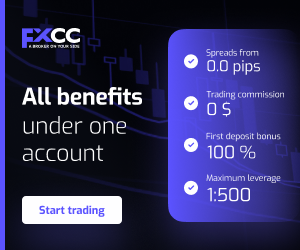KEY CHARACTERISTICS OF THE FOREX MARKET - Lesson 2
In this lesson you will learn:
- How does the Forex Market differ from other financial markets
- The advantages of the Forex Market
- What does the Forex Market consist of
The forex exchange market differs from many other markets in several ways. The sheer size of the market ensures that it is by far the largest global market place. Irrespective of its use as a venue for speculation, the forex market also acts as an essential environment for international trade to take place; without the existence of the foreign exchange market, the global trade of goods and services would be impossible to transact.
The forex market also differs from most other financial markets due to it being sensitive to both micro and micro economic events, whereas individual equities (shares/stocks) and equity markets will primarily move due to domestic events in particular countries, or the data and reports issued by individual companies, or business sectors. The factors altering the movement of currencies' values are therefore unique in comparison to other markets, which makes it essential that retail forex traders stay constantly up to date with unfolding economic events, through constant reference to an economic calendar.
Forex trading for retail traders is possibly the fairest market place to trade in. With the estimated $5.1 trillion daily turnover, it's impossible for the forex markets to be rigged; the market cannot be cornered, or dominated, although it is fair to state that a huge event, or policy announcement by a central bank, can alter the value of a currency immediately and dramatically. However, this is anticipated and accepted movement in value and not change that can be attributed to malpractice. The forex market is arguably the most pure available, in terms of price discovery as a consequence of millions of traders, placing billions of trades on the currencies and currency pairs each trading day, the price reflected on the various exchanges is effected by sentiment relating to the domestic countries' economic performance.
The retail forex market offers opportunities for novice traders to either speculate or invest in markets for the first time. It's arguably the cheapest and easiest venue and environment in which to trade. Unlike, for example; buying and holding shares, traders can trade in forex markets using a small percentage of a small account. For example; they could deposit circa $500 and perhaps trade as little as $5 on an individual trade. If novice traders are mindful of how to use leverage, margin and risk to its best effect, they can conservatively manage the first foray into trading with minimal stress.
The speed of trade execution and the cost of transacting currency trades on the forex markets, has improved considerably over recent years, both the advances in technology and increased competition are the key reasons for these improvements. Fills (trades being transacted over and through the platforms) are extremely rapid and generally executed very close to the price quoted. The spreads (difference between the bid and ask price), are now historically at their lowest ever levels, particularly on the major currency pairs, such as the EUR/USD, on which retail traders will often witness spreads of less than one pip.
Another by proxy (accidental) advantage of trading forex versus trading other securities, is the education it provides; many novice traders rapidly become constantly aware of (and therefore conversant with), current macro-economic trends, they'll be aware of employment/unemployment figures, current interest rates, inflation data, GDP data etc. Whilst gaining this crash course in education, retail traders can also very quickly learn the necessary skills required to go short and long in the forex market.
Spot Forex, Futures and Options
The forex market mainly consist of the: spot, futures and the options market. The spot market is the principal market retail traders will operate in when they're placing their orders into the market through a broker. The description of the spot market probably evolved from the term "on the spot"; the trade must be concluded immediately, or completed within a set short period of time. The spot market is where currencies are bought or sold versus other currencies based on the current price. The market for spot transactions is the largest in foreign exchange markets; accounting for approximately 35% of dealing volume.
In a spot trade, two counter-parties involved in a trade, agree to a rate of exchange or exchange rate and an amount on the transaction date for the exchange of currencies to occur on the spot value date. Upon the spot value date arriving, one party delivers the agreed amount of one currency to the other party, in turn receiving the agreed amount of the other currency.
One amount, usually the first expressed in the base currency, is set at the time of the spot transaction. The second figure, the counter currency, is calculated based on the agreed exchange rate.
Spot exchange rates have high impact in the forex markets due to spot transaction underpinning the valuation of most foreign exchange derivatives, this would include: forex forwards out-rights, currency futures and currency options.
Spot exchange rates are usually expressed by how many units of the counter currency, are required to purchase one unit of the base currency. For example; if the spot exchange rate for EUR/USD (the value of the Euro versus the U.S. Dollar) is 1.10, were the Euro is the base currency and the U.S. Dollar is the counter currency then $1.10 would be required to purchase one Euro for value, to be settled in two business days.
